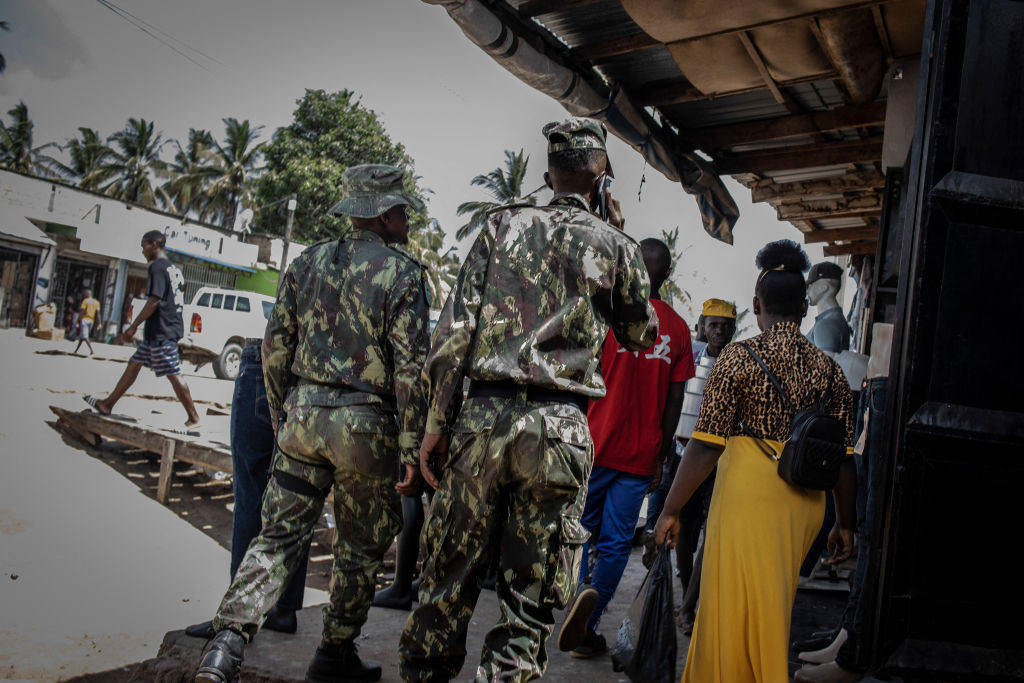ADF STAFF
Mozambican Defense and Security Forces have developed a strong relationship with residents of the Quissanga district in the embattled Cabo Delgado province since they deployed before municipal elections last year.
The security forces, also known as the FDS, and residents have built enough trust to exchange information about terrorists who have established small bases in a region bordering Mucojo, in the district of Macomia. The terrorists also frequently circulate in other parts of Quissanga, according to local reports.
“These soldiers we have now have no problem with the population, they even say that if they hear any strange movement they should tell us and vice versa,” resident Tima Saide told the Carta de Moçambique news website.
In previous deployments to Quissanga, the FDS faced accusations of sexual violence against women and mistreating civilians. Those accusations harmed civil-military relations.
“In these days I have not yet heard anything about attacks on women, whether it happened then we don’t know, but the military here has won everyone’s sympathy,” Mohamed Nsilimo, another resident, told the website.
The harmony between the FDS and Quissanga residents is important, as the Islamic State group has recently increased attacks around Cabo Delgado, including Quissanga, which was briefly seized in March. Rebel fighters beheaded three members of the security forces on nearby Quirimba Island during the assault.
The rising violence caused the displacement of almost 100,000 people between early February and March after Islamic State fighters launched fresh attacks from their heartland in coastal central Cabo Delgado into the south, according to the U.N.’s International Organization for Migration. More than 61,000 of those displaced were children.
Save the Children called it the largest displacement of children in Cabo Delgado in 18 months.
“Now in its seventh year with no immediate end in sight, the conflict in Cabo Delgado has taken a devastating human toll,” the humanitarian organization said on its website. “There are repeated reports of beheadings and abductions, including multiple child victims.”
Rising piracy concerns also have prompted FDS forces to inform local artisanal fishermen in Quissanga how far out to sea they can safely fish. Mozambique’s artisanal fisheries sector account for 50% of the country’s daily protein, 85% of the annual fish catch and livelihoods for half of its population in coastal communities, according to the U.N.’s International Fund for Agricultural Development.
When there was a Mozambican “vessel at sea in the past, they did not say where the people must finish to fish, so each vessel was a target,” an anonymous resident told Carta de Moçambique.
In mid-May, insurgents raided the community at dawn and killed at least 10 people, mostly security forces; stole vehicles, including those belonging to international aid organizations; and looted businesses.
Such attacks are increasing as the peacekeepers of the Southern African Development Community Mission in Mozambique gradually withdraw from the country. The mission’s mandate ends in July.
Since January 2024, the Islamic State has claimed responsibility for 57 attacks in Mozambique compared to 51 for all of 2023, according to the Institute for Security Studies.

